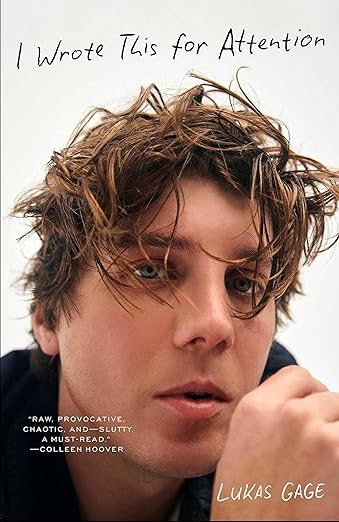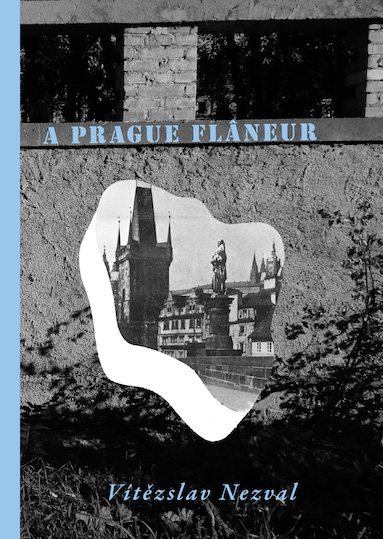 Act one opens with scattered recollections of her family, well set in the preternatural twilight of childhood memories alongside the more straightforward development of her early acting. From a class where she may have been half the age of the second youngest to serious auditions, one travels with Capshaw through the tempest of a life lived too early.
Act one opens with scattered recollections of her family, well set in the preternatural twilight of childhood memories alongside the more straightforward development of her early acting. From a class where she may have been half the age of the second youngest to serious auditions, one travels with Capshaw through the tempest of a life lived too early.
Category: Memoir
A review of A Different Kind of Power by Jacinda Ardern
 In A Different Kind of Power Jacinta Ardern gives some space to the ad hominem criticism she received while trying to bring about a fairer and more humane society in which no one was left behind. After first becoming a Member of Parliament in New Zealand, in 2008, she rose to the Prime Ministership, serving from 2017 to 2023. Her reader-friendly book is humorous in places, frank about her experiences as a woman and a mother, and a good introduction to present-day New Zealand.
In A Different Kind of Power Jacinta Ardern gives some space to the ad hominem criticism she received while trying to bring about a fairer and more humane society in which no one was left behind. After first becoming a Member of Parliament in New Zealand, in 2008, she rose to the Prime Ministership, serving from 2017 to 2023. Her reader-friendly book is humorous in places, frank about her experiences as a woman and a mother, and a good introduction to present-day New Zealand.
A review of Fit Into Me by Molly Gaudry
 So many of Gaudry’s sentences, from the very first – “Because most nights during the final semester of my MFA at George Mason University, while recovering from a mild traumatic brain injury, I fell asleep watching Prison Break on my laptop in bed.” – to the penultimate sentence – “Because words, imagined in the greatest yearning, as a means of finding love, defining it; as a means of shaping it (This is how it feels, this is where it hurts) and sharing with others its permutations, astonishments, exaltations, and erosions.” – seem to offer an explanation for some unstated condition.
So many of Gaudry’s sentences, from the very first – “Because most nights during the final semester of my MFA at George Mason University, while recovering from a mild traumatic brain injury, I fell asleep watching Prison Break on my laptop in bed.” – to the penultimate sentence – “Because words, imagined in the greatest yearning, as a means of finding love, defining it; as a means of shaping it (This is how it feels, this is where it hurts) and sharing with others its permutations, astonishments, exaltations, and erosions.” – seem to offer an explanation for some unstated condition.
A review of I Wrote This for Attention by Lukas Gage
 When Gage talks about his “gnawing, pathological hunger to prove my worth,” he’s at his most compelling precisely because, as the memoir closes, you come to understand the internet is his ribcage. But as with everything internet-coded, he flees the potentially parasocial, the baring himself, for the lark, burned by the internet and approval hunger. By the final line we become him in his post-divorce trip to Iceland, looking up from the grief only to find “the Northern Lights—the one constant in this strange, icy night—were gone.
When Gage talks about his “gnawing, pathological hunger to prove my worth,” he’s at his most compelling precisely because, as the memoir closes, you come to understand the internet is his ribcage. But as with everything internet-coded, he flees the potentially parasocial, the baring himself, for the lark, burned by the internet and approval hunger. By the final line we become him in his post-divorce trip to Iceland, looking up from the grief only to find “the Northern Lights—the one constant in this strange, icy night—were gone.
A review of It All Felt Impossible: 42 Years in 42 Essays, by Tom McAllister
 There’s something special about finding within a book ourselves, to see pieces of us reflected back to us on a page; there’s something special, too, about getting a peek into a world that feels far removed from our every day, about an escape that teaches us something about someone fully unlike ourselves. For me, Impossible bridged this line between selfishness and empathy, between the joy at shared experience and the curiosity at learning about someone who’s nothing like I am.
There’s something special about finding within a book ourselves, to see pieces of us reflected back to us on a page; there’s something special, too, about getting a peek into a world that feels far removed from our every day, about an escape that teaches us something about someone fully unlike ourselves. For me, Impossible bridged this line between selfishness and empathy, between the joy at shared experience and the curiosity at learning about someone who’s nothing like I am.
A review of Elis – Irish Call Girl by Anna Rajmon
 Rajmon is as sharp and thoughtful as she is hilarious – in telling her story, she misses nothing regarding her experience. The picture she paints of the Irish prostitution scene is a comprehensive and complex one – from how accommodation is obtained, to how advertising is organized, to how meetings are arranged, to how travel from location to location is organized, to the power dynamics between sex workers, ‘clients’ and ‘agencies’ (‘pimps’ would be a more accurate term) – Rajmon lays it all out in black-and-white.
Rajmon is as sharp and thoughtful as she is hilarious – in telling her story, she misses nothing regarding her experience. The picture she paints of the Irish prostitution scene is a comprehensive and complex one – from how accommodation is obtained, to how advertising is organized, to how meetings are arranged, to how travel from location to location is organized, to the power dynamics between sex workers, ‘clients’ and ‘agencies’ (‘pimps’ would be a more accurate term) – Rajmon lays it all out in black-and-white.
A review of A Prague Flâneur by Vítězslav Nezval
 The streets, bridges, buildings, and cafés “where Prague lives” provide a wealth of stimuli to which Nezval responds with a catalogue of memories. His Prague is like the site of an archaeological dig whose layers expose various periods of personal history. It also is the site of shops whose windows display goods that take on hallucinatory appearances, and the setting for chance meetings with strange characters and events that touch on the uncanny.
The streets, bridges, buildings, and cafés “where Prague lives” provide a wealth of stimuli to which Nezval responds with a catalogue of memories. His Prague is like the site of an archaeological dig whose layers expose various periods of personal history. It also is the site of shops whose windows display goods that take on hallucinatory appearances, and the setting for chance meetings with strange characters and events that touch on the uncanny.
A review of Finding Theodore and Brina by Terri-Ann White
 Terri-Ann White leans into this paradox in Finding Theodore and Brina, allowing herself full creative license in the almost impossible attempt to uncover stories that have been buried, obfuscated, or are just missing, to create an engagement rather than a re-telling. The result is a multi-layered, complex memoir that plays with the notion of what we can and cannot know while creating something as true as any memoir.
Terri-Ann White leans into this paradox in Finding Theodore and Brina, allowing herself full creative license in the almost impossible attempt to uncover stories that have been buried, obfuscated, or are just missing, to create an engagement rather than a re-telling. The result is a multi-layered, complex memoir that plays with the notion of what we can and cannot know while creating something as true as any memoir.
A review of Tremor by Sonya Voumard
 Tremor has many elements of a quest narrative. She recounts the many stages of her search to reach an acceptance of her ‘movement disorder’ by enduring social embarrassments, often feeling professionally vulnerable and overcoming her fears of being judged by others. Miraculously, Voumard’s good humour, dignity and empathy for others never waver, which results in a moving and thought-provoking memoir.
Tremor has many elements of a quest narrative. She recounts the many stages of her search to reach an acceptance of her ‘movement disorder’ by enduring social embarrassments, often feeling professionally vulnerable and overcoming her fears of being judged by others. Miraculously, Voumard’s good humour, dignity and empathy for others never waver, which results in a moving and thought-provoking memoir.
A review of The Third Gilmore Girl by Kelly Bishop
 As her memoir shows, Kelly Bishop (formerly “Carole”) brought years of experience to the role of Emily. Those of us who were entertained by this determined fictional character will find Kelly as resolute in real life as she was in that role. Her lifelong pursuit of her dream is inspiring.
As her memoir shows, Kelly Bishop (formerly “Carole”) brought years of experience to the role of Emily. Those of us who were entertained by this determined fictional character will find Kelly as resolute in real life as she was in that role. Her lifelong pursuit of her dream is inspiring.